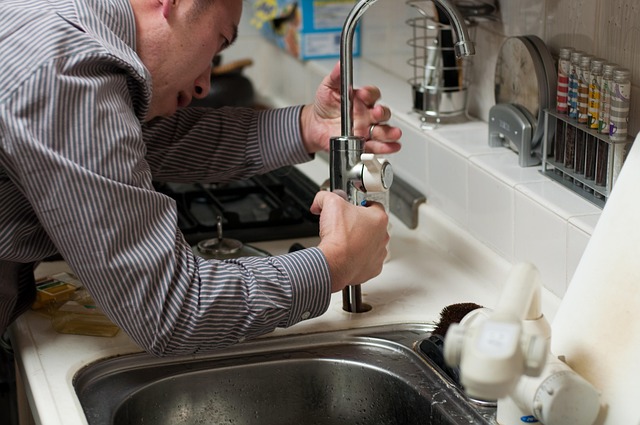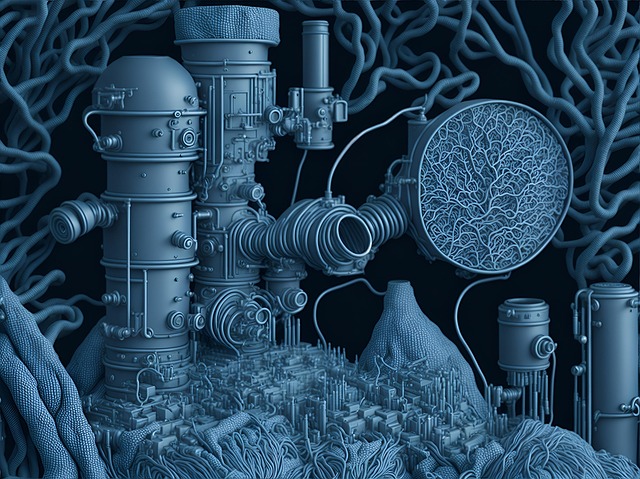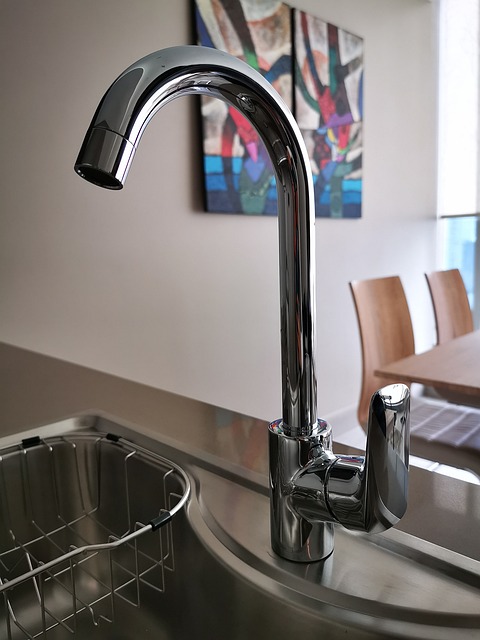Leaking water heaters pose flooding risks; look for discolored areas, hissing sounds, high water bills, mold/mildew, and rotten egg odors. Prepare with a maintenance plan, emergency kit, and keep vital Emergency Plumbing Services contact information. For significant leaks, assess first; small repairs possible, but substantial damage needs professional plumbers for swift leak stoppages, damage mitigation, and guidance on replacements or repairs.
Are you prepared for a plumbing disaster? A leaking water heater can quickly turn into a flood, causing extensive damage. Learn to recognize the signs early: strange noises, mold growth, or elevated utility bills. Stock up on essential supplies and know your emergency contact—professional Emergency Plumbing Services. Don’t wait; act promptly when issues arise to prevent costly repairs and disruptions. This guide will equip you with the knowledge to handle minor leaks and know when professional help is needed.
- Recognizing the Signs of a Leaking Water Heater
- Preparing for an Emergency Plumbing Situation
- When to Call in Professional Emergency Plumbing Services
Recognizing the Signs of a Leaking Water Heater

Recognizing the signs of a leaking water heater is crucial before it escalates into a flooding emergency. Some telltale symptoms include discolored or rusted areas on the tank, especially around the pressure relief valve and connections. You might also notice a persistent, faint hissing sound coming from the unit, indicating potential damage or overpressure.
Additionally, pay close attention to your water bills. A sudden spike in usage could point to a leak, as can the presence of mold or mildew near the heater. If you smell a distinctive, rotten egg odor, it’s likely a sign of sulfur bacteria growth caused by standing water and leaks. Prompt action is key; contact emergency plumbing services immediately if you suspect any of these issues to prevent further damage and potential flooding.
Preparing for an Emergency Plumbing Situation

When it comes to preparing for an emergency plumbing situation, like a leaking water heater, having a plan in place can save you from potential disasters. Start by identifying the main shut-off valve for your water supply. This is crucial as it allows you to quickly stop the flow of water and prevent further damage. Regularly checking and maintaining this valve is an essential part of proactive home maintenance.
Additionally, keep a kit ready with essential tools and supplies. This might include a wrench to turn off the valve, buckets for catching leaking water, and even sandbags to help contain any flooding. With these preparations, you’ll be better equipped to handle a leaking water heater emergency and potentially save yourself from costly repairs or worse, a full-blown flood. Remember, in such situations, prompt action is key, and having reliable Emergency Plumbing Services nearby can make all the difference.
When to Call in Professional Emergency Plumbing Services

If you notice a water heater leak that seems significant or is getting worse quickly, it’s crucial to act fast. However, before deciding to call in emergency plumbing services, assess the situation. Small, manageable leaks can sometimes be addressed with simple fixes like replacing O-rings or pressure relief valves. But if the leak is substantial, showing signs of damage to the tank, or water is flowing uncontrollably, professional help is required immediately.
Emergency plumbing services are invaluable when dealing with water heater leaks that pose a serious risk of flooding. Plumbers have the specialized knowledge and tools needed to stop the leak swiftly, minimize water damage, and prevent costly repairs down the line. They can also assess whether the water heater needs to be replaced or if it can be repaired and restored to safe operating condition.
A leaking water heater can quickly escalate into a flooding disaster if left unattended. Recognizing the signs early, preparing your home for such emergencies, and knowing when to call in professional emergency plumbing services are crucial steps to minimize damage. By following these guidelines, you can navigate this challenging situation effectively, ensuring your peace of mind and protecting your property. Remember, prompt action is key when dealing with water heater leaks to avoid costly repairs and potential health hazards.
